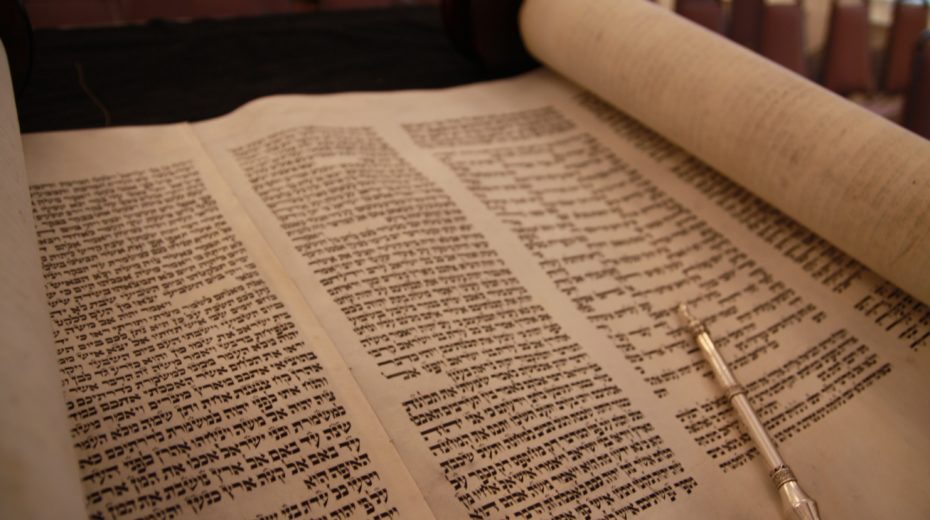On the road to Emmaus, Yeshua met with two of His disciples and, beginning at Moses and all the Prophets, He expounded to them in all the Scriptures the things concerning Himself. (Luke 24:27). For our Torah studies this year, therefore, week by week we will seek to discover how all of Torah prepared the way for the coming Messiah.
18 October 2025 (26 Tishrei)
Bereshit (In the beginning): Genesis 1:1-6:8
In just over five chapters, this week’s Bible reading takes us from the beginning of Creation to the Great Flood. According to the years given concerning the lives of the patriarchs from Adam to Methuselah, this can be calculated as the first 1656 years of mankind on the earth. During those years mankind descended from the wonderful fellowship with God to the depth of depravity of a world now washed away, which caused God to say, I am sorry that I have made them (Genesis 6:7).
No-one, except Adam and Eve has experienced life in the Garden of Eden. No-one since the Great Flood except, as we shall see, Noah and his family, witnessed the depravity to which mankind fell. Yet in a few short chapters, we have sufficient to understand the nature and need of all men and women.
Year by year we can review the first chapter of Genesis, look at the created universe around us, still speaking to us (Psalm 19) of our Creator, and learn new things. The magnificent created order was an expression of the nature and heart of God and came about through the strength of His spoken Word. How sad that the nature of created mankind, with the ability to either trust and obey God or to disobey Him, inevitably led to separation from their Creator. Since then, there have been people like us who long to be redeemed to that blissful existence of Eden, but without the ability in ourselves to find a way back. Indeed, the sin that heaped on sin over a few hundred years echoes our own inability to resist the snake-like power that tempted Adam and Eve, or the natural tendency to go one’s own way, away from a close relationship with our Creator.
Truly, Torah is a mirror to our own nature and the problem of mankind is expressed in the very first chapters of the Bible.
Nevertheless, right at the beginning, we find hints at a way back by studying these chapters. Abel’s offering to God of the firstborn of his flock was accepted, while Cain’s offering of the fruit of the ground was not accepted. Here is our first clue to finding our way back to fellowship with God, which will be a subject of many future chapters of Torah. Cain gave of the work of his hands. Abel gave a life back to God in the form of a lamb. God looked on the heart of both of the brothers, just as He had looked on the hearts of Adam and Eve when they sinned. We see the first indications of sin being a matter of the heart and the power of sin being a matter of life and death, but God planned a way back. Another hint that there is a way back to fellowship with God comes through the life of Enoch who walked with God. Chapter 5:22-24 is a brief description of a man who achieved what many of us would like to achieve, restoring the close relationship with God. That which was once lost can surely be regained.
It is with hindsight that we, in later generations, are able to build up a more detailed picture through all Scripture. Expectation grew to fulfilment, anticipating the one who would be the Redeemer of His people. The themes of Genesis develop and the thread of truth weaves its way consistently through all Scripture. It is sometimes more plainly stated, such as in Isaiah 9 – the promise of a child being born to the Nation of Israel who would become Wonderful, Counsellor, Mighty God, Everlasting Father, Prince of Peace – or in Isaiah 53, where the Saviour of mankind is likened to a sacrificial lamb, bearing our sins for us. No wonder it was important for us to be taught, right at the beginning of time, that redemption to fellowship with God is likened to the sacrifice of a lamb, such as Abel made. Yet, we now understand that the lamb points to a human being – one who was to be born and die for us.
So in these first few chapters of Genesis we discover the nature of fallen mankind and our need of redemption. The hints are there to be fulfilled in the coming years of the One who would be our redeemer.
John the Apostle walked with Yeshua during His earthly ministry and was able to realise, after Yeshua’s sacrificial death, that this was the one to whom the Scriptures pointed, confirming also what Yeshua taught to the disciples on the Road to Emmaus. But Yeshua was not just any man. John realised that the one whom God sent to be our sacrifice and our redeemer existed as part of God Himself before creation. God surely looked ahead to the time when He would come in the form of a man, and that man is Yeshua HaMashiach.
John put it this way, blending the imagery of created light with the spiritual light that was in Yeshua even before He was manifested as a man:
In the beginning was the Word, and the Word was with God, and the Word was God. He was in the beginning with God. All things were made through Him, and without Him nothing was made that was made. In Him was life, and the life was the light of men. And the light shines in the darkness, and the darkness did not comprehend it. (John 1:1-5)
That Yeshua the Son of God was also Son of Man is shown in the genealogy given by Luke, in Chapter 3 of his Gospel account, which is traced right back to Creation down to Seth and his father Adam. Each of the patriarchs in Luke’s list, including the genealogy given in Genesis 5, were chosen by God who foresaw the day when Yeshua would be born as a man, conceived of the Holy Spirit to be both God and man.
Did Yeshua have Enoch in mind as one who learned to walk with God in close relationship, when He prayed for us all before His sacrificial death?
Jesus spoke these words, lifted up His eyes to heaven, and said: “Father, the hour has come. Glorify Your Son, that Your Son also may glorify You, as You have given Him authority over all flesh, that He should give eternal life to as many as You have given Him. And this is eternal life, that they may know You, the only true God, and Jesus Christ whom You have sent. (John 17:1-4)
The fulfilment that is Yeshua, begins in our Torah portion this week and continues throughout all Scripture. We must have eyes to see and ears to hear, reading our Bible with expectation.














